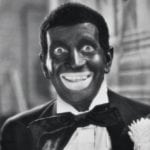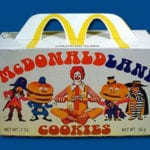 Mysteries
Mysteries  Mysteries
Mysteries  History
History 10 Surprising Stories About the Texas Rangers
 Humans
Humans 10 Philosophers Who Were Driven Mad by Their Own Theories
 Miscellaneous
Miscellaneous 10 Video-Game-Worthy Weapons and Armors from History
 Weird Stuff
Weird Stuff 10 Psychics Who Accurately Predicted Wartime Events
 The Arts
The Arts 10 Pieces of Art Inspired by a Broken Heart
 Health
Health 10 Science Fiction-Sounding New Medical Treatments
 History
History 10 Surprising Facts About the Father of Submarine Warfare
 Space
Space Ten Astonishing New Insights into Alien Worlds
 Weird Stuff
Weird Stuff 10 Bizarre Summer Solstice Rituals Still Practiced Today
 Mysteries
Mysteries Top 10 Haunting Facts About the Ghost Ship MV Alta
 History
History 10 Surprising Stories About the Texas Rangers
 Humans
Humans 10 Philosophers Who Were Driven Mad by Their Own Theories
Who's Behind Listverse?

Jamie Frater
Head Editor
Jamie founded Listverse due to an insatiable desire to share fascinating, obscure, and bizarre facts. He has been a guest speaker on numerous national radio and television stations and is a five time published author.
More About Us Miscellaneous
Miscellaneous 10 Video-Game-Worthy Weapons and Armors from History
 Weird Stuff
Weird Stuff 10 Psychics Who Accurately Predicted Wartime Events
 The Arts
The Arts 10 Pieces of Art Inspired by a Broken Heart
 Health
Health 10 Science Fiction-Sounding New Medical Treatments
 History
History 10 Surprising Facts About the Father of Submarine Warfare
 Space
Space Ten Astonishing New Insights into Alien Worlds
 Weird Stuff
Weird Stuff 10 Bizarre Summer Solstice Rituals Still Practiced Today
10 Songs That Were Once Surprisingly Banned
Although CDs and records are very rarely, if ever, banned, that does not stop discerning radio stations and sometimes even governments from issuing boycotts of specific songs. Such songs might be banned outright or simply refused airing on the radio, which used to be more or less the same thing before the halcyon days of the Internet.
When songs are banned, we imagine that there is a rational reason for doing so. Overt sexual references, use of expletives, or some moral justification are usually the driving for behind song bans. Sometimes, however, when a song is banned, it is for the most bewildering and unexpected of reasons.
10 Blondie—‘Atomic’
New wave rockers Blondie quite surprisingly found themselves on BBC’s list of banned songs during the First Gulf War. The conflict, which started in 1990, saw the BBC effectively pruning the airwaves of any song that was deemed “inappropriate.” The BBC cast a wide net with its banning of songs during the conflict, and despite having been released 11 years prior, “Atomic” found itself in that net.
While arguably, with tensions being rife during the Gulf War, the BBC may have had a point in pulling some songs from the airwaves, adding Blondie’s “Atomic” to the list defies logic. The song’s title was deemed too “inflammatory” for airplay while the conflict was ongoing, yet the song’s meaning is far removed from the BBC’s interpretation.[1]
Atomic’s actual meaning seemed to have skipped the BBC’s radar, because the song is about “sexual explosiveness,” and the BBC have historically had disdain for sexually provocative songs.
9 Link Wray—‘Rumble’
Link Wray’s 1958 classic “Rumble” was originally banned from many US radio stations, notably in Boston and New York, for fear of the song inciting gang violence. Although it did not take much for a song to be banned back in the 1950s, even by the sensibilities of the time, banning “Rumble” is a stretch for the imagination because the song contains no vocals. That is zero words.
It was not the raucous rock ‘n’ roll sound of the song that caused the widespread boycott from radio stations but rather the song’s title that caused the ban. The use of the word “rumble” as the title proved just too much for several radio DJs, and therefore, the song was banned.[2]
Surprisingly, the banning of Link Wray’s song didn’t have much negative impact on the tune’s commercial success. “Rumble” remained in the charts for ten weeks after its release, and even today, it is revered as iconic.
8 Harold Arlen, E.Y. Harburg—‘Ding-Dong! The Witch Is Dead’
Following the death of ex-UK prime minister Margaret Thatcher, the seemingly innocent song “Ding-Dong! The Witch is Dead” from the 1939 film The Wizard of Oz was banned by the BBC in 2013.
Margaret Thatcher was more than a polemical figure in UK politics; she was revered by many but also equally despised. Therefore, it was no coincidence that “Ding-Dong! The Witch is Dead” reached number two in the UK after her passing.
The BBC refused to play the full song after it peaked in the charts, stating that the song’s newfound popularity “was clearly a celebration of a death.”[3] Whether the growing popularity of the song was in bad taste or not, it contains no specific reference to the late prime minister, therefore it is difficult to believe how this seemingly innocent fairy-tale song could ever garner such infamy.
7 Pink Floyd—‘Another Brick In The Wall (Part 2)’
After the release of Pink Floyd’s seminal 1979 album The Wall, “Another Brick in the Wall (Part 2),” from said album, spent three months in the South African music charts. Despite the song’s commercial success, the then-apartheid-era South African government banned it.
Disgruntled by their subpar education standards during apartheid, South African children took to their schools chanting the lyric, “We don’t need no education,” apparently missing the irony of the double negative. “Another Brick in the Wall (Part 2)” soon became a national rallying cry for the oppressed South African peoples during 1980, and with the increasing popularity of the song, protests spread across the country, with the lyric as a sort of revolutionary mantra.
During apartheid, the South African government held complete power in banning books, film, songs, etc. that they deemed “politically or morally undesirable.”[4] Even though Pink Floyd never actually intended for “Another Brick in the Wall (Part 2)” to be a protest song, with it creating discord across the oppressive apartheid state, it soon became banned.
6 Captain SKA—‘Liar Liar GE2017’
The banning of songs from the radio for political reasons yet again did not escape the United Kingdom. In 2017, the UK was going through a snap general election, and Captain SKA’s “Liar Liar GE2017,” which is essentially a criticism of Prime Minister Theresa May, coincided with the election.
The song is a comprehensive protest that accuses Theresa May of being, you guessed it, a liar. It is heavily critical of the conservative prime minister’s policies and even uses a sound bite from one of her speeches followed by, “She’s a liar liar.” Donald Trump is also not free from the song’s scathing criticisms: “putting the mother of all bombs into tiny hands will go very wrong.”
Across the United Kingdom, the song was judged to be just too politically entrenched, and mainstream radio stations refused to play it, based on political impartiality laws during an election. This is all very familiar in the UK, as the Sex Pistols suffered a similar fate with “God Save the Queen,” but at least that was back in 1977, not 2017. Nevertheless, the song witnessed surging popularity through digital dissemination.[5]
5 The Beatles—‘Real Love’
A reformed Beatles released “Real Love” in 1996 using a demo of the late John Lennon’s vocals, to which returning members Paul, Ringo, and George put music. What should have been a momentous reconciliation of all four members, at least in music if not in person, was somewhat soured by the BBC’s surprising refusal to play the song on the radio.
In times gone by, the Beatles’ songs were usually banned, rightly or wrongly, because of perceived drug references in their lyrics. However, in “Real Love’s” case, the BBC did not consider the song to be contemporary enough for their otherwise discerning tastes and therefore banned it from their radio playlists. The refusal to play the song seemed to irk Paul McCartney because he called the BBC Radio One “the kindergarten kings.”
Commercially, “Real Love” was a far cry away from the Beatles’ past hits of the 1960s and 1970s, which could be credited to the BBC’s unexpected ban.[6]
4 Black Lace—‘Agadoo’
Almost in an effort to prove that the BBC actually do have some taste in music, in 1984, Black Lace’s nonsensical pop hit “Agadoo” was banned for just not being “credible” enough. That is what they call the pot calling the kettle black.
In the BBC’s defense, it’s not hard to understand their standpoint. With lyrics like “Aga-doo-doo-doo, push pineapple, shake the tree, aga-doo-doo-doo, push pineapple, grind coffee,” trying to listen to the song is something of a challenge. Even singer Dene Michael conceded that the song is “complete nonsense.” That being said, banning a song on its perceived “credibility” is simply perplexing, especially considering that the song was incredibly popular and remained in the UK music charts for 30 weeks.
“Agadoo” was even remixed and released again in 2009, despite being voted one of the worst songs of all time in the UK.[7]
3 David Bowie—‘Space Oddity’
In 1969, art could not be separated from reality for David Bowie. In the wake of Apollo 11’s mission to the Moon, Bowie’s conveniently written “Space Oddity” was banned while the mission was ongoing.
The lyrics in “Space Oddity” were thought to be a little distasteful for what was a historic milestone for human civilization because the song is a story of an astronaut, “Major Tom,” who essentially gets lost in space. Perhaps it was a bit too on the nose; the BBC seemed to think so, as the all-too-timely song was banned from their radio stations.
Thankfully, the Apollo 11 Moon landing was a success (if you were not aware), so the ban on “Space Oddity” from the airwaves was only temporary. After the ban was lifted later in the year, the song became David Bowie’s first UK hit and an ethereal classic.[8]
2 Lorde—‘Royals’
The listeners of two San Franciscan radio stations, 104.5 KFOG and 96.5 KOIT, spearheaded a ban of Lorde’s “Royals” in 2014 due to an upcoming baseball game between the San Francisco Giants and the Kansas City . . . Royals.
After the release of “Royals” in 2013, the song has become an unofficial anthem of the Giants’ rival baseball team, the Kansas City Royals, so the song antagonized avid Giants fans so much that they wanted it banned. Both San Franciscan radio stations conceded to the angry listeners, and “Royals” was swiftly omitted from both the station’s playlists.
The ban was only in place until the end of the World Series, and there was no malice intended toward Lorde. In response to the ban, KFOG stated, “No offense, Lorde, but for the duration of the World Series, KFOG Radio will be a Royals-free zone.”[9] If this all doesn’t make sense to you, that is because it does not. Non-baseball fans of San Francisco just had to do without “Royals” for a while.
1 Radiohead—‘Creep’
Once again, the BBC Radio One’s taste in music prompted another ban of a widely beloved song. Radiohead’s initial release of “Creep” in 1992 received widespread criticism from many music journalists, but the BBC went a little further and refused to play the song altogether.
The chorus in “Creep” contains the use of an expletive, but no, that was not the source of the ban; a censored edit of the song could and did redeem any issues the expletive may have caused, anyway. It was, in fact, that BBC Radio One branded the song too depressing and therefore out-and-out refused to play it. “Creep” is admittedly melancholic, a label attached to Radiohead’s sound that they have never escaped, but that apparently qualified for a ban for the BBC.
Ironically, the song was later re-released in 1993 due to popular demand and is perhaps Radiohead’s most famous song, even if the band members have all grown to despise it.[10]
Avid musician and writer.
For more musical controversies, check out 10 Controversial Songs That Left Their Mark On Pop Culture and 10 Famous Songs That Are Secretly Dirty.




![10 Episodes That Were Banned From Television [Videos—Seizure Warning] 10 Episodes That Were Banned From Television [Videos—Seizure Warning]](https://listverse.com/wp-content/uploads/2019/10/image-150x150.jpg)



